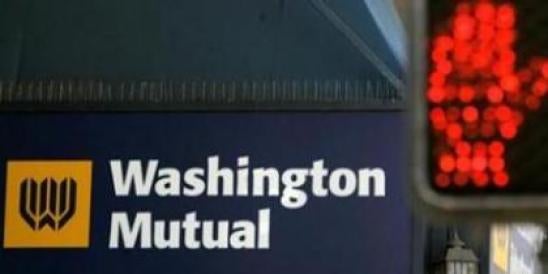Much has already been written about the “insider trading” aspects of Judge Walrath’s September 13 Opinion denying confirmation of WaMu’s Chapter 11 plan of reorganization (the Opinion can be found HERE). In a nutshell, Judge Walrath expressed the view that a person in possession of MNPI (material non-public information) could be considered to be engaged in insider trading even after the MNPI restriction period ends.
While that part of the Opinion is certainly a blockbuster, we are focusing here on a different aspect of the Opinion, namely Judge Walrath’s view that members of an ad hoc committee can be considered to owe fiduciary duties to other creditors holding the same class of securities. Yikes! The first time she said this, we noted her comments in “The WaMu Double Whammy,” which can be found HERE. We repeat now what we said then, which is that this is a frightening conclusion. Except then, Judge Walrath’s comments were more speculative. In her latest Opinion, although still dicta, all speculation is laid to rest.
Citing to the Supreme Court decision in Dirks v. SEC, 463 U.S. 646 (1983), Judge Walrath found two independent bases for concluding that that a “colorable claim” existed for concluding that the “Settling Noteholders” owed fiduciary duties to other noteholders in the same class. First, because the Settling Noteholders received MNPI in the course of settlement discussions with the Debtors, they became “temporary insiders” of the Debtors and owed the same fiduciary duties as other corporate insiders. Second, the Settling Noteholders (in Judge Walrath’s view) held themselves out as representing the entire class of noteholders, and therefore assumed fiduciary duties to act in the best interests of the entire class.
Judge Walrath does not simply rely on the Dirks case or her own views, she also refers to several other decisions (including her own earlier WaMu decision) and a law review article to reach the conclusion that ad hoc committees in possession of MNPI can owe fiduciary duties. Even so, the comments about fiduciary duties would appear to be dicta, as Judge Walrath rests her decision on insider trading considerations rather than potential breach of fiduciary duties.
So what is a large bondholder to do?
The primary reasons for forming ad hoc committees are self-evident. First, “size matters,” and debtors are far more willing to negotiate with a group of creditors who hold substantial claims in the aggregate rather than with a series of individual creditors. Indeed, prepetition borrowers and issuers often encourage bondholders to form ad hoc committees precisely for this purpose. While there are certainly no guarantees that a settlement negotiated by an ad hoc committee will be accepted by the requisite bondholders generally in a consent solicitation or exchange offer (if out-of-court) or a plan vote (if in-court), it is certainly beneficial to know whether a critical mass of bondholders is willing to support a proposed solution. Second, teaming up with other bondholders enables cost-sharing of legal and financial advisor fees.
Judge Walrath’s answer to the above question is simple. If you are an ad hoc committee and in possession of MNPI, either don’t trade in the securities or establish an internal wall between the private and public sides of your shop, and further don’t assume you are free to trade just because the agreed “restricted period” has terminated. Fair enough, although whether the WaMu Settling Noteholders actually crossed the line rather than merely presenting a “colorable claim” is left open for another day. But why does the concept of fiduciary duties need to be brought into the discussion? There are plenty of remedies for improper trading while in the possession of MNPI, but adding the burden of fiduciary duties opens up an entirely new category of risks that, potentially, expose ad hoc committee members to legal claims having nothing to do with insider trading.
It is not difficult to imagine situations in which the foregoing scenario could play out. Suppose, for example, an ad hoc committee consists of large bondholders interested in a debt-equity conversion. Some smaller non-committee bondholders, however, may have no interest in holding equity, either because it is not part of their investment strategy or because their fund is precluded from holding equity securities. In a debt-equity conversion plan, therefore, these latter bondholders could be compelled to sell their equity (or their right to receive equity) quickly, and potentially at a low price given urgent timing considerations. Could these bondholders sue the ad hoc committee members for not acting in the best interests of bondholders who did not want to, or could not, hold equity in the reorganized company?
Or how about the very common scenario in which the debtors agree to reimburse the fees of the ad hoc committee’s professionals. Can non-committee bondholders sue the committee members because they did not also negotiate for the reimbursement of professional fees incurred by non-committee members?
In fact, the WaMu dicta begs an even more basis question: if ad hoc committee members have fiduciary duties like official committees, are they restricted from trading even if not in possession of MNPI unless they set up a strict internal wall?
Whether the WaMu Settling Noteholders did, in fact, engage in improper insider trading is an issue that may or may not be resolved in the long run and is, of course, highly dependent on the unusual facts of the WaMu situation. But whether ad hoc committee members owe fiduciary duties to non-committee members is, we fear, an issue that may play out repeatedly in the years to come, whether simply through behind-the-scenes threats or eventually through live litigation. That’s too bad, because there are already ample remedies (such as insider trading laws) for the rare abuse of an ad hoc committee position without layering on top of those remedies a fiduciary duty construct that could turn a molehill into a mountain.


 i
i

